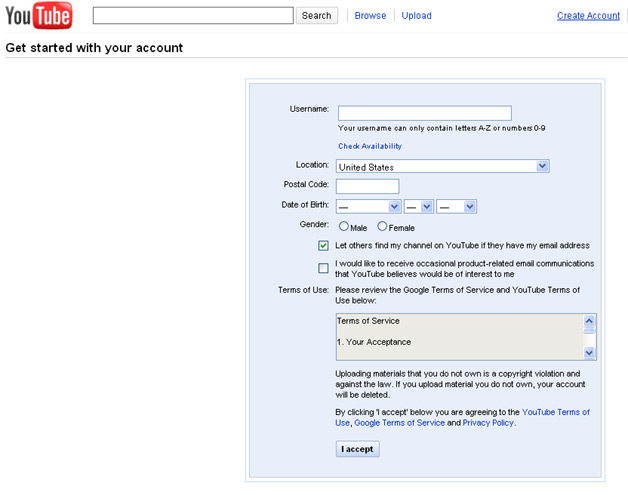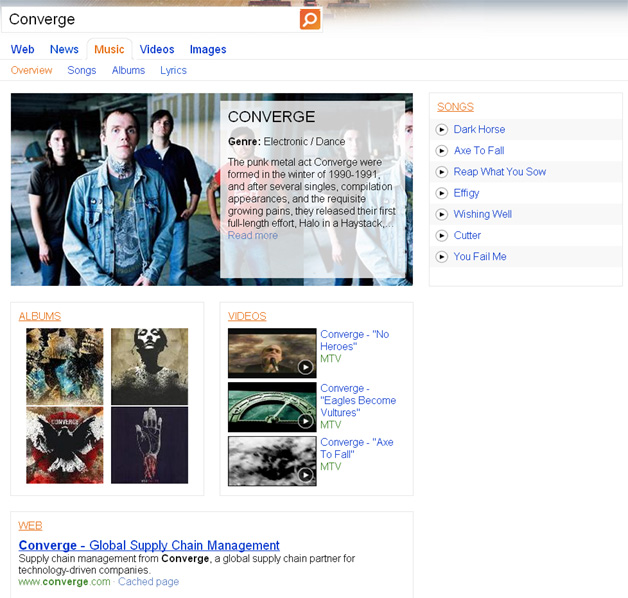A little over a month ago, Motorola Mobility CEO Sanjay Jha made comments implying that Google Music would be coming with Android Honeycomb.
Google Music is being tested internally at Google, according to CNET, who cites “music industry sources”. These sources also said that the app described in this recent XDA Developers forum, when someone discovered it as they installed Android Honeycomb on a phone, was a “working version of the service, but that the final version could be “much different”.
Obviously, Google’s not talking. Google is, however, holding back Honeycomb, according to a recent report from Bloomberg BusinessWeek. Might Google Music be reason for this? Google does offer this snippet mentioning music in its description of Honeycomb:
The platform offers new connectivity that developers can build on. API support for Bluetooth A2DP and HSP profiles lets applications query Bluetooth profiles for connected devices, audio state, and more, then notify the user. For example, a music application can check connectivity and status and let the user know that music is playing through a stereo headset. Applications can also register to receive system broadcasts of pre-defined vendor-specific AT commands, such as Platronics Xevent. For example, an application could receive broadcasts that indicate a connected device’s battery level and could notify the user or take other action as needed. Applications can also take advantage of the platform’s new support for full keyboards connected by USB or Bluetooth.
Last fall, we looked at a proposal that Google had reportedly been shopping around to record labels. According to Billboard, this involved charging consumers about $25 a year to store songs in their “locker” from which they could access on any Internet-connected device by either streaming or downloading.
“Google’s download store would operate like a conventional digital retailer, giving the consumers the ability to purchase individual tracks and digital albums,” wrote Billboard’s Ed Christman. “But Google locker subscribers would have the additional option of having their purchases transferred directly to their cloud-based account.”
Google also reportedly wanted to obtain the right to provide customers with the ability to listen to a full-track stream of every song once.
Of course, we don’t know how much of this will actually be part of the final product, but it was an interesting look at the strategy the company was allegedly pursuing. It would no doubt be a hit with Android users at the very least. Google account holders make up a significant portion of the web as well.
In fact, it’s entirely possible that Google Music could play heavily into the company’s social strategy, which it still appears to be honing. This week, Google announced that in the coming weeks, it would start enforcing the requirement of Google accounts by all YouTube users – another key factor in the social strategy, if you ask me.

Naturally, Google Music would compete directly against Amazon and Apple, but music is one area where Google could get another leg up on Facebook. Music is very much a part of the social media landscape. Apple is trying to capitalize on this with Ping.

Music has been one area where even Myspace has been able to thrive in a Facebook world – although the future of that may be more questionable now – perhaps even more so with Google entering the game.
The bottom line is that people love to share music, and discover new music from their friends. Social and music go hand in hand, and this might be one of Google’s best ins as a new social media force. Expect YouTube integration in one form or another.
Then there is search. People search for music all the time, and Google is not shy about putting its own products into the search mix – via oneboxes, universal search, etc. Let’s not forget paid search, however.
This week, Google announced a new type of AdWords ad format – the Media Ad. These ads allow advertisers to insert videos into their ads, which when clicked, open a big video right in the middle of the search results page. Now, these are only available to major motion picture studios right now, but Google said they will become available to more advertisers in time.

Now, they’re for movie trailers. I wouldn’t rule out music videos in the future. This could be great for labels (or even independent musicians) to promote their talent. Want to ensure that someone searching for a band sees the video for their best song (or the single, at least), this seems like a pretty good way to do that. You never know what’s going to come up in a YouTube search – bootleg recordings of live performances, fan-made videos, or who knows what?
It will be interesting to see if bands adopt more Google Profiles if Google finds a way to get more people to actually use and look at them. The rumored toolbar approach to social might be the key there. Google might just go the artist page route, similar to what Bing has done – only more Google Profile/Place Page-style.
Google’s approach to music is going to be a critical thing to watch, as it could have far-reaching implications for Google in not only music, but social, mobile (Android), and in some ways even search.





 WebProNews is an iEntry Publication
WebProNews is an iEntry Publication